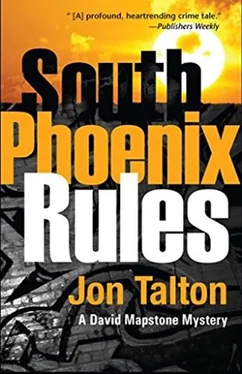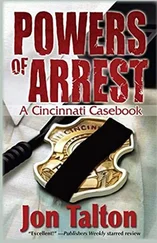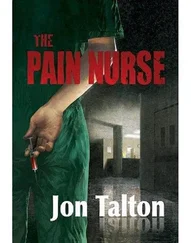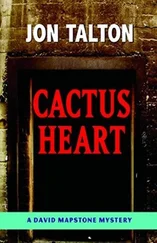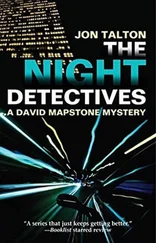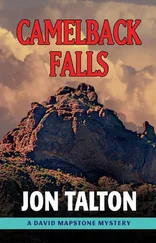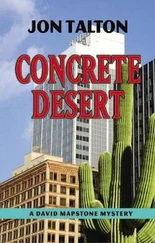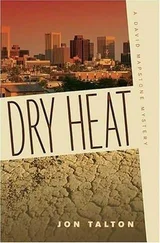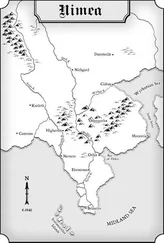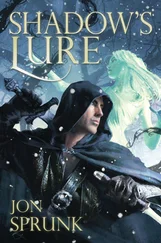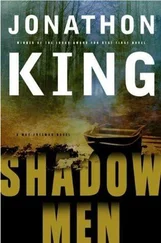“This is amazing!” Robin said.
A woman about my age with long black hair and a white blouse ran to Peralta and gave him a hug. Magdalena was the owner, apparently, and introductions were made. She and Peralta conversed in rapid-fire Spanish, of which I could make out about every third word. I heard “pall of death,” but realized they were talking about the Phoenix economy. Which was true enough: a city that lived by real estate and low-wage jobs was now slowly dying. Her sons and nephews had worked in construction and now they couldn’t find any work. Her daughter had bought four rental houses during the boom and had now lost them all to the bank. She asked Peralta if he wanted a tarot reading and he declined.
“Then come on back,” she said. “They’re waiting.”
We followed her through a door into a small office with cinder-block walls painted baby blue. One man was seated behind a desk and another lounged on a sofa.
“El sheriff!” The man behind the desk came around and shook Peralta’s hand with both of his. He was middle-aged and thickset, with short hair, prominent eyebrows, and a faded Mexican eagle tattoo poking out beneath the sleeve of one arm. Again, a long exchange in Spanish, the vowels colored with warmth.
“An old friend?” Robin asked.
Peralta leaned his head toward us. “I put him in prison for ten years.”
“And it was the best thing that ever happened to me!” The stocky man shook our hands and said his name was Guillermo Gris. “But call me Bill.”
The man on the sofa slowly stood and put his hands on his hips. He was my height, six-two, and his broad shoulders tapered into a slender waist. He was darker than Bill, with an unlined face, and hair so black it had a shine. He wore a blue blazer over jeans and a light-blue shirt.
“Sheriff Peralta.”
Peralta said, “It’s good to see you again, Antonio.” There was less warmth here, unlike with Bill. They spoke to each other respectfully, in businesslike voices.
Bill unfolded two metal chairs and we all sat, me beside Antonio on the sofa. I could see the butt of a pistol under his blazer.
“This is the young lady?” he asked.
“Call me Robin.”
He reached over and took her offered handshake, and he didn’t look as if he was about to kiss her hand.
Peralta said, “I’d like for you both to tell what’s happened the past few weeks.”
Robin hesitated and so did I, not knowing either of these men, one of them armed. As often was the case, Peralta was working several steps ahead and not deigning to tell me what was going on. But I nodded to her, and she began with the rainy evening when she opened the parcel. I took over when it seemed appropriate and we alternated back and forth in the retelling. Neither Bill nor Antonio spoke. Antonio stared at the blue wall. Bill smoked a cigarette.
“What do you think?” Peralta directed this at Bill.
He stubbed out the cigarette, exhaled the last plume of smoke, and rubbed his mouth. “These two are alive because they want them to be alive. No other reason.”
I asked about the chase on the freeway, the gun barrel coming out of the window.
“They were just fucking with you, letting you know they can do you whenever they want,” Bill said.
So much for my heroics.
“Describe the men you saw at the gun shop.” Antonio’s voice was deep and rich, his English barely accented. I did the best I could, but we had been sitting across a parking lot and a street without binoculars. I couldn’t see faces. He gave small, precise nods and said nothing more.
“Sounds all fucked up, though,” Bill said. “If La Fam really killed El Verdugo, they probably did it for Los Zetas.” He looked at us. “Zetas, the enforcers for the Gulf cartel. Take down a Sinaloa cartel guy.”
“Maybe,” Peralta said. “But the alliances change all the time. Could have been MS 13; the Salvadorans are spreading fast. Could have been a hit ordered from prison by the new Mexican Mafia.”
“Not like back in the day,” Bill said. “We always had gangs in this town. Blacks in their ’hoods, and Latinos in theirs. Remember the Pachucos? We had gangs in Sono. Even the sheriff remembers that. He was Sono, too, before his dad made it and he moved out to Arcadia.” Bill was referring to La Sonorita. Like Golden Gate, Cuatro Milpas, El Campito, Harmon Park and Grant Park, it was one of old Phoenix’s barrios. Now they were almost all gone. La Sonorita, anchored by Grant Park, El Portal restaurant, and St. Anthony’s Catholic Church south of downtown, amazingly survived.
“By the time I came up,” he said, “we fought over geographic territory. It wasn’t no picnic, you know? The blacks had the Bloods and Crips. We did what we had to do.” His voice whooped, “Wedgewood Chicanos, forever!” Then his face turned wistful. “But there was a code, you know? A brotherhood. We were there to protect our own. Now, man, everybody’s fighting over everyplace. It’s all about drugs. The cartels are in it and it’s all fucked up. Glad I got out of the life. Glad the big man here got me out.”
Antonio looked bored.
Peralta sensed it. “The question is what we’re dealing with here? El Verdugo in little Phoenix, Arizona. Don’t like the look of that. This is not small-time.”
“He wasn’t El Verdugo!” Robin said, frustration wrinkling her brow.
“Tell me again how you knew this Jax?” Antonio asked. Robin went through it once more, how they had met at a gallery on Roosevelt Street. Antonio wanted to know which gallery. I could sense tension entering her voice and she started nervously playing with her hair, but she gave the same details I had now heard a dozen times. Was Antonio a cop, FBI, or a P.I. like Peralta? Maybe he was ATF, working for Amy Preston.
“What makes the most sense is that he was killed by the Gulf cartel or by Los Zetas,” Antonio said. “Maybe he was on a job here and they found him. Maybe he was trying to leave the life. Either way. Wouldn’t surprise me if they contracted it out to La Familia in the U.S. La Familia’s gone out on their own since 2006, but they used to have ties to the Gulf organization.”
“What about the gun shop?” Peralta asked.
“Zetas were a private army for the Gulf Cartel,” Antonio said. “Now the old alliance between the two is falling apart. They’re becoming rivals.” It was hard to keep things straight. My brain wandered off into analogies with the contending parties of Renaissance Florence, the Guelfi and the Ghibellini, or of the petty German states before the Napoleonic wars. Nothing really changes, except this was all about bloody crime and America’s insatiable hunger for drugs and cheap labor.
Antonio’s rich voice continued. “Los Zetas recruited from some of the best of the Mexican army. Airborne soldiers. Special forces. The pay is more than those soldiers can make in a lifetime with the government. Now they need weapons, lots of weapons.”
“This is the place to get ’em,” Bill said.
“It’s not enough,” Antonio said. “The existing supply is dominated by the Sinaloa cartel.”
“So the Gulf cartel or Los Zetas wants its own supply,” Peralta said. “Did Vega come out of the Mexican army?”
Antonio shook his head. “Nobody knows where he came from. But he’s been connected to at least thirty hits on high-value members of rival cartels. And always, the snake’s head is left imprinted on the victim’s forehead. Hell of a calling card.”
Bill said, “ Alla entre blancos .” Let the white men settle it.
“No,” Antonio said. “This is destroying my country. It’s destroying your city.”
Robin said, “I can’t believe any of this.”
I spoke up. “So why are they letting us live?”
Читать дальше
